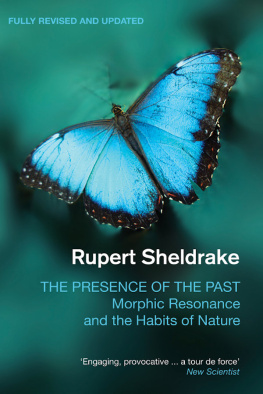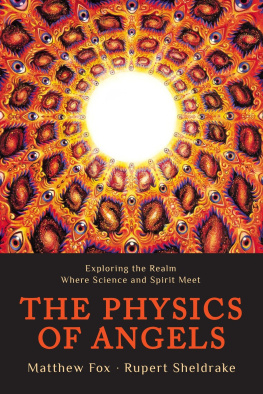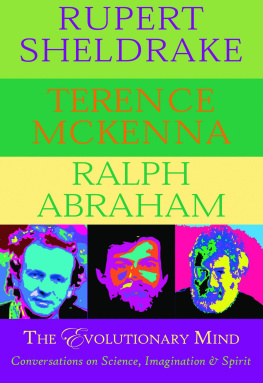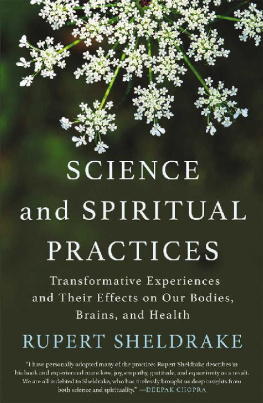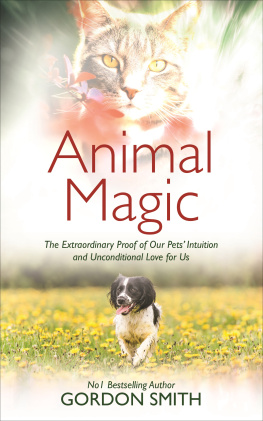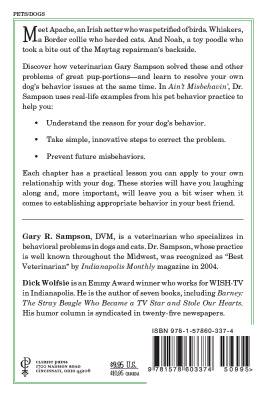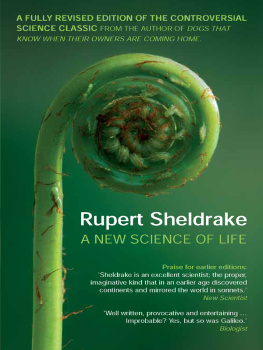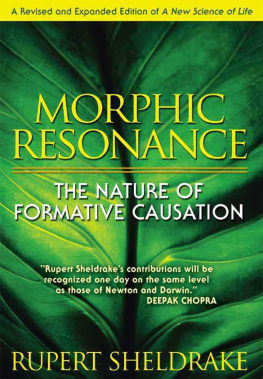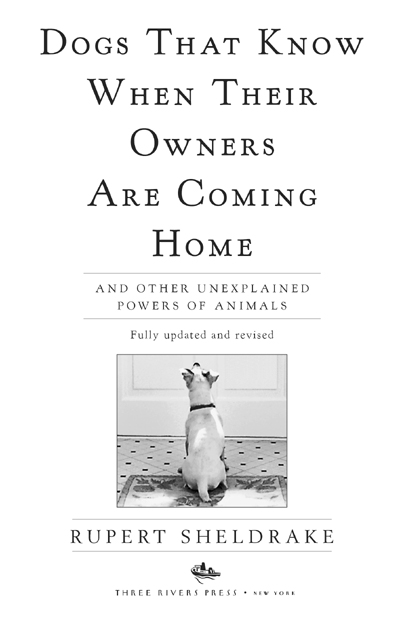A LSO BY R UPERT S HELDRAKE
Morphic Resonance
A New Science of Life
The Presence of the Past
The Rebirth of Nature
The Sense of Being Stared At
Seven Experiments That Could Change the World
WITH R ALPH A BRAHAM AND T ERENCE M CKENNA
The Evolutionary Mind
Trialogues at the Edge of the West
WITH M ATTHEW F OX
Natural Grace
The Physics of Angels
Copyright 1999, 2011 by Rupert Sheldrake
All rights reserved.
Published in the United States by Three Rivers Press, an imprint of the Crown Publishing Group, a division of Random House, Inc., New York.
www.crownpublishing.com
Three Rivers Press and the Tugboat design are registered trademarks of Random House, Inc.
A previous edition of this work was published in hardcover in the United States by Crown Publishers, an imprint of the Crown Publishing Group, a division of Random House, Inc., New York, in 1999, and was subsequently published in paperback in the United States by Three Rivers Press, an imprint of the Crown Publishing Group, a division of Random House, Inc., New York, in 2000.
Library of Congress Cataloging-in-Publication Data
Sheldrake, Rupert.
Dogs that know when their owners are coming home : and other unexplained powers of animals / Rupert Sheldrake.1st rev. ed.
p. cm.
1. PetsPsychic aspects. 2. Extrasensory perception in animals. I. Title.
SF412.5.S5 2011
636.0887dc22
2011004065
eISBN: 978-0-307-88846-4
Cover design by Jennifer OConnor
Cover photography: IPS Co., Ltd./Corbis (dog); Laura Doss/Brand X/Corbis
v3.1
With thanks to all the animals from whom I have learned.
C ONTENTS
P REFACE
T his is a book of recognitiona recognition that animals have abilities that we have lost. One part of ourselves has forgotten this; another part has known it all along.
As a child, like many other children, I was interested in animals and plants. My family kept a great variety of pets. In addition to our dog, Scamp, we had a rabbit, hamsters, pigeons, a jackdaw, a budgerigar, a terrapin, two tortoises, several goldfish, and tadpoles and caterpillars I would rear each spring. My father, Reginald Sheldrake, a pharmacist and amateur microscopist, encouraged my interests and fueled my fascination with the natural world when he showed me how drops of pond water teemed with myriad forms of life, and what the scales on butterflies wings looked like.
I was especially intrigued by the way that pigeons homed. On Saturday mornings my father took me to see a great liberation of them. At our local railway station at Newark-on-Trent, in the English Midlands, racing birds from all over Britain were waiting in wicker baskets, arrayed in stacks. At the appointed time, the porters let me help them open the flaps. Out burst hundreds of pigeons in a great commotion of wind and feathers. They flew up into the sky, circled around, and set off in various directions toward their faraway homes. How did they do it? I wondered. No one seemed to know. Their homing ability is still unexplained today.
At school it was a natural choice for me to study biology and other sciences, and I continued my scientific education at Cambridge University, where I studied botany, physiology, chemistry, and biochemistry as an undergraduate, and then took a Ph.D. in biochemistry. But as I proceeded in my education as a biologist, a great gulf began to open up between my own experience of animals and plants and the scientific approach that I was being taught.
The mechanistic theory of life, still the dominant orthodoxy, asserts that living organisms are nothing but complex genetically programmed machines. They are supposed to be inanimate, literally soulless. As a general rule, the first step we took when studying living organisms was to kill them or cut them up. I spent many hours of laboratory work in dissection, and then as my studies proceeded, in vivisection. For example, it was an essential part of my biology curriculum to dissect nerves from the severed legs of frogs and stimulate them electrically to make the muscles twitch. For the study of enzymes in rat liver, one of the favored tissues in animal biochemistry, we first had to decapitate the living rats, their blood spurting down the laboratory sink. I heard nothing about how pigeons homed.
A love of animals had led me to study biology, and this was where it had taken me. Something had gone wrong. I began to wonder what was going on, and tried to find out. After my undergraduate studies at Cambridge, I was awarded a Frank Knox Fellowship at Harvard, where I studied philosophy and the history of science, in search of a wider perspective. I then returned to Cambridge to begin research on plants.
For ten years I did research at Cambridge in developmental biology, while continuing to think about the outlines of a more holistic science. I became a Fellow of Clare College, Cambridge, where I was Director of Studies in biochemistry and cell biology. While working in Cambridge, I was elected a Research Fellow of the Royal Society; and under the auspices of the Royal Society I did research at the University of Malaya on rain-forest plants. I later became Principal Plant Physiologist at ICRISAT, the International Crops Research Institute for the Semi-Arid Tropics, in Hyderabad, India, helping to improve the growth and yield of crops that are a vital part of the diet of hundreds of millions of people.
I have spent more than forty years as a professional scientist, publishing papers in scientific journals and speaking in scientific congresses, and have long been a member of scientific societies, such as the Society for Experimental Biology, and a Fellow of the Zoological Society. I am a great believer in the value of scientific inquiry, but I am more convinced than ever that the mechanistic theory of nature is too narrow. I have discovered that an increasing number of my scientific colleagues agree, although most are reluctant to say so in public. I have found that the split I experienced within myself, the gulf between personal experience of life and the theory that living organisms, including ourselves, are merely soulless automata is widespread within and outside the scientific community.
I have come to realize that this split is not inevitable, and that a more inclusive kind of science is possible, as well as cheaper. But it is inevitably controversial. For some scientists, the mechanistic theory of nature is not just a testable hypothesis, but more like a religious creed. For others, open-minded inquiry is more important than the defense of long-entrenched dogmas. I have found such scientists a great help in my researches, and have received much encouragement and practical support.
In 1994 I published a book called Seven Experiments That Could Change the World in which I explored seven well-known but little understood phenomena, and suggested how inexpensive research could lead to major breakthroughs. One of these experiments concerned the possible telepathic abilities of dogs and cats. In particular, I focused on the ability of some dogs to know when their owners are coming home.
Thus through trying to find ways in which a broader view of life can be developed scientifically, I have come back to pets. It took me a long time to recognize that they are the animals we know best. I knew this as a child. To many people it is blindingly obvious, but for me it had all the force of a new discovery. I realized that the animals we know best have much to teach us. They can help enlarge our understanding of life; they are not just cute, cuddly, comforting, and fun.



